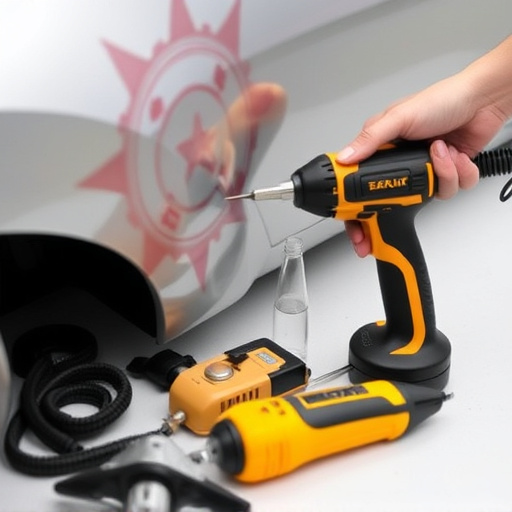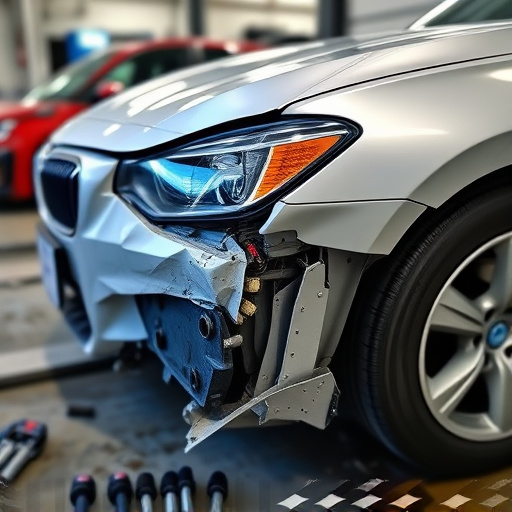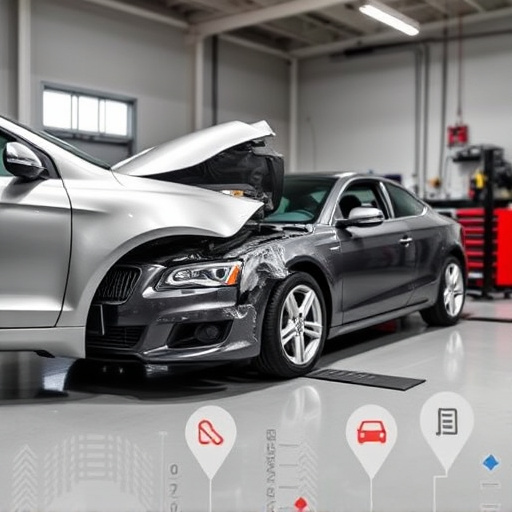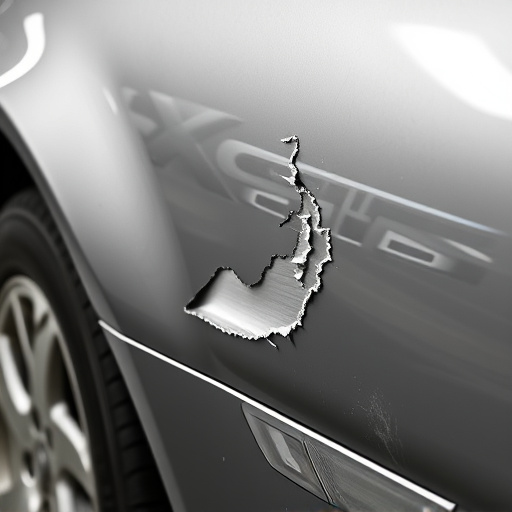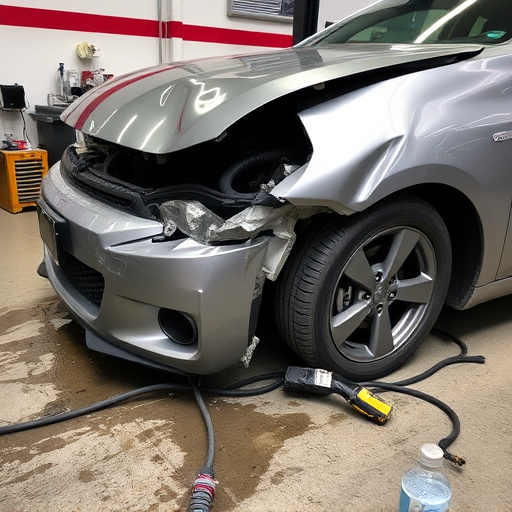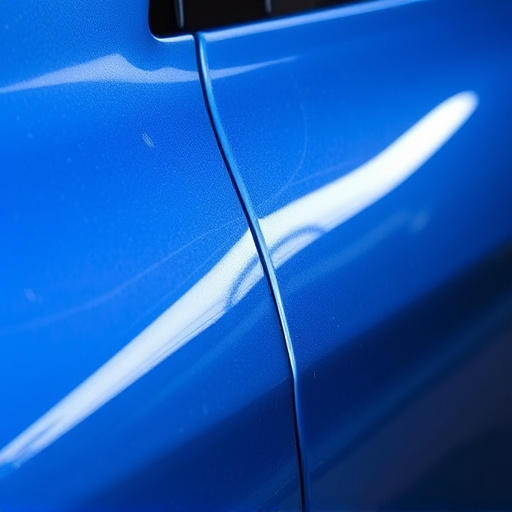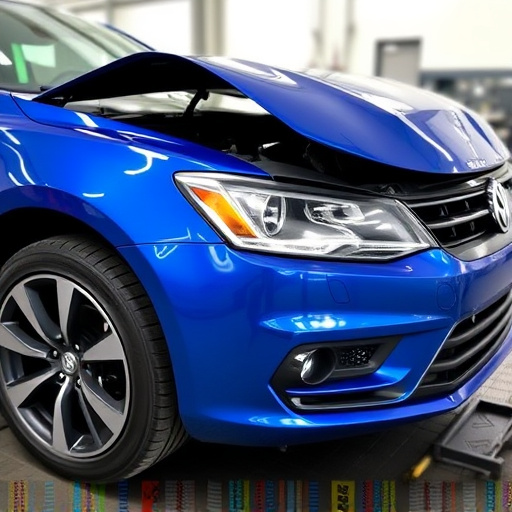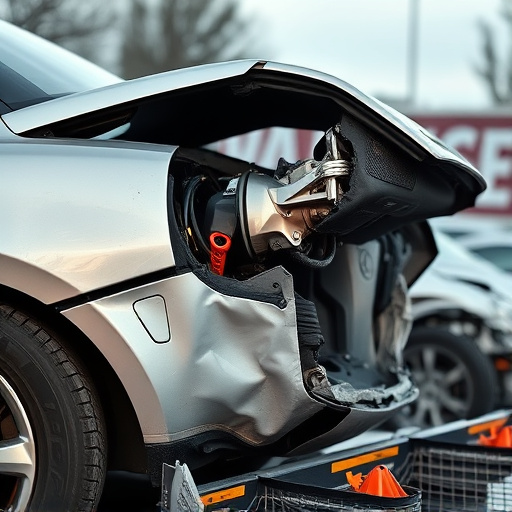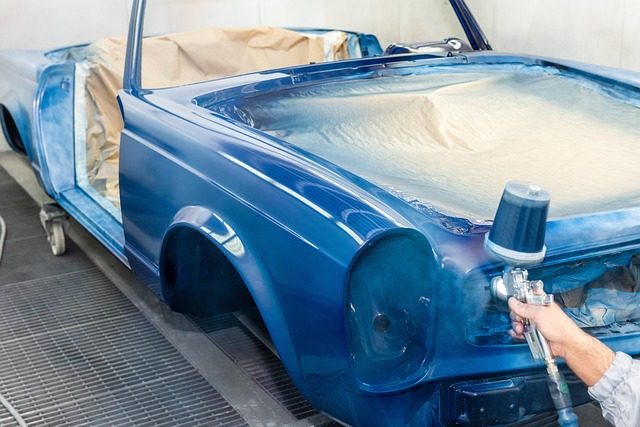The automotive industry is witnessing a significant shift towards aluminum panel dent repair, a cutting-edge technology revolutionizing car body restoration. As lightweight aluminum becomes the norm in modern vehicles, this efficient method offers faster, cost-effective solutions compared to traditional techniques. With superior quality repairs and quicker turnaround times, it gains popularity among repair shops and vehicle owners alike. The future of aluminum dent repair is promising, driven by the industry's move towards lightweight materials and technological advancements. However, challenges related to aluminum's softness require continuous development to ensure structurally sound and aesthetically pleasing results, while staying current with training and equipment is vital for meeting evolving customer expectations.
Aluminum panel dent repair is transforming the auto repair industry, offering efficient and cost-effective solutions for damaged vehicles. Driven by advancements in technology, this innovative process leverages specialized tools and techniques to minimize body shop downtime and reduce material costs. As aluminum becomes the preferred choice for modern vehicle construction, the demand for aluminum panel dent repair services continues to rise. This article explores the rise of this technology, its numerous advantages, and future prospects while addressing the challenges that lie ahead.
- The Rise of Aluminum Panel Dent Repair Technology
- Advantages and Impact on the Auto Repair Industry
- Future Prospects and Challenges in Aluminum Panel Dent Repair
The Rise of Aluminum Panel Dent Repair Technology
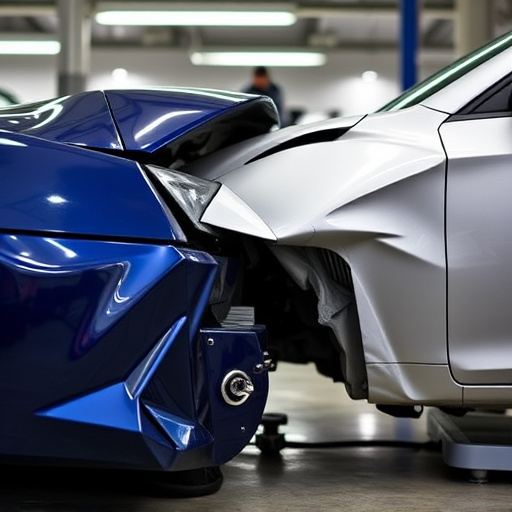
The automotive industry is witnessing a significant evolution with the advent of advanced aluminum panel dent repair technologies. This innovative approach to car body restoration has taken auto collision repair to new heights, revolutionizing the way body shop services are delivered. With the increasing use of lightweight aluminum in modern vehicle manufacturing, the need for efficient and effective dent repair methods has become paramount. Traditional repair techniques often involve lengthy processes and significant material wastage, but cutting-edge aluminum panel dent repair systems offer a game-changer solution.
These state-of-the-art technologies employ precision tools and advanced software to accurately identify and correct dents, scratches, and other damage on aluminum car bodies. The process is not only faster but also ensures minimal disruption to the original finish, preserving the vehicle’s aesthetic appeal. As a result, car owners can benefit from quicker turnaround times, reduced costs, and superior quality repairs, making aluminum panel dent repair an increasingly popular choice in the auto repair industry.
Advantages and Impact on the Auto Repair Industry
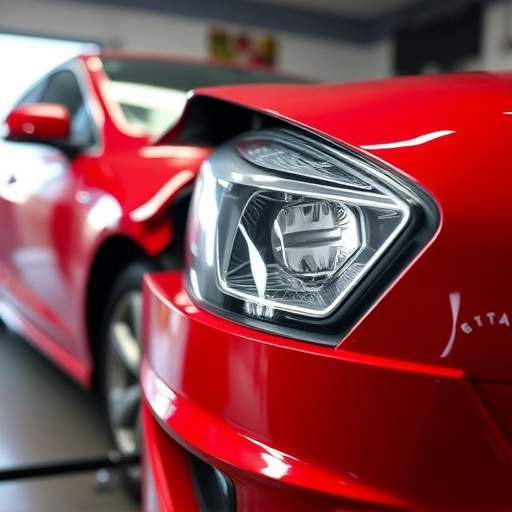
Aluminum panel dent repair is revolutionizing the auto repair industry with its numerous advantages. One of the key benefits is the reduced cost compared to traditional car body repair methods, especially for minor dents and dings. This cost-effectiveness makes it a preferred choice for both repair shops and vehicle owners, leading to increased accessibility for quality repairs.
Moreover, aluminum panel dent repair offers faster turnaround times, which is a significant advantage in an industry where efficiency is crucial. The lightweight nature of aluminum also contributes to better fuel economy, as it reduces the overall weight of the vehicle. This secondary benefit extends beyond just aluminum panel dent repair into the broader context of auto painting and car body repair, making it an integral part of modern automotive care.
Future Prospects and Challenges in Aluminum Panel Dent Repair

The future of aluminum panel dent repair looks promising as the auto industry continues to embrace lightweight materials for improved fuel efficiency and performance. With advancements in technology, repair methods are becoming more precise and efficient, allowing for quicker turnaround times and reduced costs. This trend is expected to gain momentum, especially with the increasing popularity of electric vehicles (EVs) that heavily rely on aluminum construction.
However, challenges remain. As aluminum is a softer metal compared to traditional steel, it can be more prone to damage during the repair process if not handled correctly. The industry must continue to develop and refine techniques to address these unique characteristics, ensuring that the repairs are both structurally sound and aesthetically pleasing. Furthermore, staying abreast of new advancements in tools, equipment, and training will be crucial to keeping up with evolving customer expectations for high-quality car body restoration and frame straightening services.
Aluminum panel dent repair technology is reshaping the auto repair industry, offering efficient, cost-effective, and environmentally friendly solutions. By leveraging advanced tools and techniques, repair shops can reduce downtime, minimize material waste, and provide high-quality results. As this technology continues to evolve, we can expect further innovations that will make aluminum panel dent repairs even more accessible and affordable. However, staying informed about the latest trends and challenges is crucial for auto repair professionals to adapt and thrive in a competitive market driven by consumer expectations and sustainability goals.
